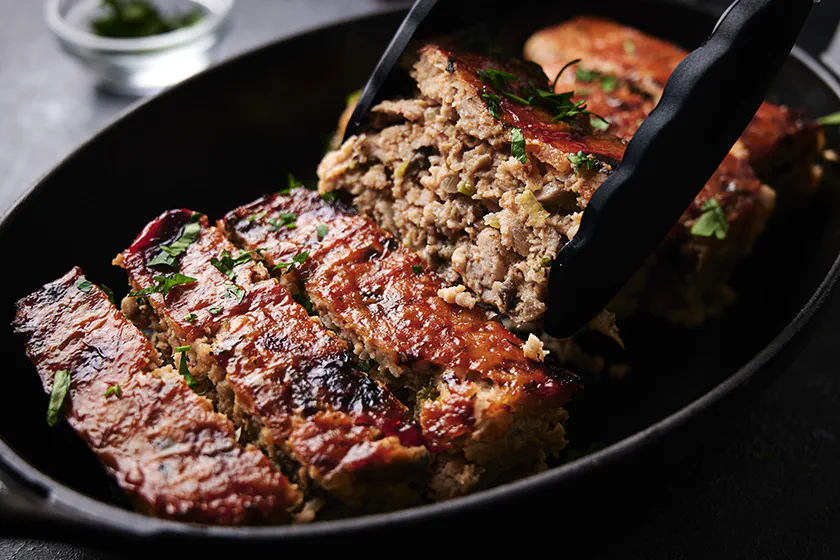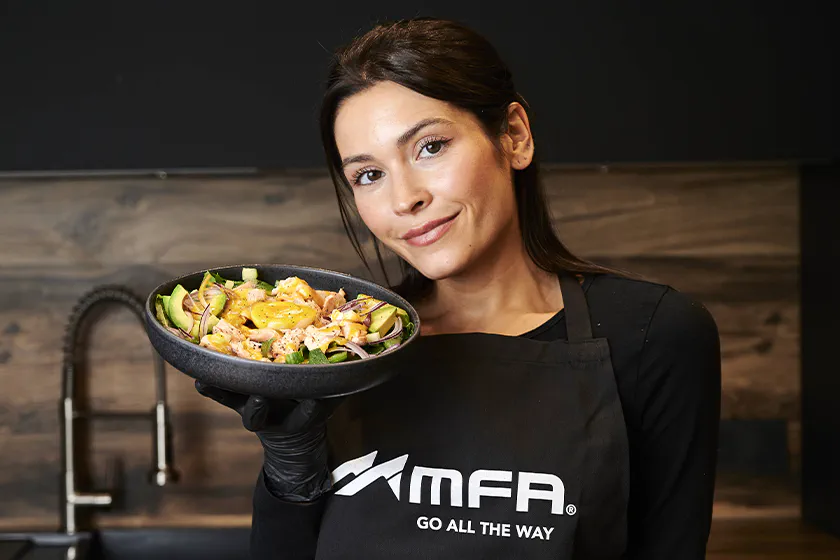5 Best Foods to Naturally Boost Testosterone Levels

Healthy testosterone levels are important for your overall health, especially regarding physical fitness. If you’re looking to level up your game both in and out of the gym, it’s not just about the reps and sets. It’s also about what you put on your plate. If you’re looking for ways to naturally boost your testosterone levels, we’ve got the lowdown on the top 5 foods that can help you get there.
What is Testosterone?
Testosterone is an essential hormone in our bodies. It’s mostly commonly known for its role as a sex hormone—it’s the major sex hormone for men— but it also serves functions in women.
Testosterone is responsible for a number of functions, including:
- Bone growth and strength
- Muscle size and strength
- Sperm production
- Libido (sex drive)
Testosterone levels can also have effects on mood. The body’s production of testosterone boosts significantly during puberty and then begins to decline around age 30.
Healthy Levels of Testosterone
There’s a range of what constitutes a healthy testosterone level. What’s considered normal or optimal varies based on the individual. We’re all unique! For males, the normal range for free testosterone levels (if we’re measuring through the blood) is 300 to 1,000 nanograms per deciliter (ng/dL) or 10 to 35 nanomoles per liter (nmol/L). For females, the range is 15 to 70 ng/dL or 0.5 to 2.4 nmol/L.
Top 5 Testosterone-Boosting Foods
Now, let’s touch on the top foods that can help give your testosterone a lift. Consuming more of these foods is simple, effective, and delicious!
Eggs
Eggs are a great way to boost testosterone levels. This is because they contain two vital nutrients: cholesterol and vitamin D. These two nutrients are both building blocks for testosterone production. Not to mention, eggs are a great source of protein. This will allow you to pack on muscle while also boosting T-levels.
Beans, Peas, and Lentils
Legumes, which include beans, peas, and lentils, are powerful foods for healthy testosterone production. Legumes are packed with zinc and magnesium, two minerals that have been shown to increase the levels of free testosterone in men. They are also excellent sources of plant-based protein and fiber.
Dark, Leafy Greens
Dark, leafy greens such as spinach, collard greens, kale, and Swiss chard are great ways to add more essential minerals to your diet. They are especially rich in magnesium, which we’ve already mentioned is associated with higher testosterone levels. So, swap out the lettuce in your sandwiches or salads for one of these darker greens instead. Or toss a solid handful into your post-workout protein shake.
Salmon
Salmon is another powerful food with testosterone-boosting abilities. Salmon and other fatty fish are packed with omega-3 fatty acids, which are known for reducing inflammation and promoting circulatory health. Salmon is also a great source of vitamin D, which we already discussed is a key building block for testosterone production. Plus, the high-quality protein in salmon supports muscle growth and repair.
Nuts
Nuts aren’t just convenient snacks; they’re also rich in healthy fats that promote testosterone production. Some of the best options include almonds and walnuts. Studies have found that high intakes of monounsaturated fats found in nuts may help boost testosterone levels. They’re the perfect option for an on-the-go healthy snack or as a crunchy topping on your stir-fry, oatmeal, yogurt, and salads.
Final Takeaways
Healthy testosterone levels are essential for sexual health, bone growth, and muscle strength. The foods we discussed are rich in nutrients like vitamin D, zinc, magnesium, and omega-3 fatty acids—all of which are shown to promote testosterone production. Remember, though, balance is key. These foods are part of a bigger picture – one that includes regular exercise, adequate sleep, and stress management.
Jordana Tobelem, RD, LDN, is a Registered Dietitian passionate about empowering individuals to reach their full potential through nutrition education. Drawing on her clinical dietetics background, she offers consulting services to a variety of healthcare brands and organizations. Jordana stays up to date with the latest nutrition research to develop impactful content for her clients. She holds dual academic degrees in Business and Dietetics.



